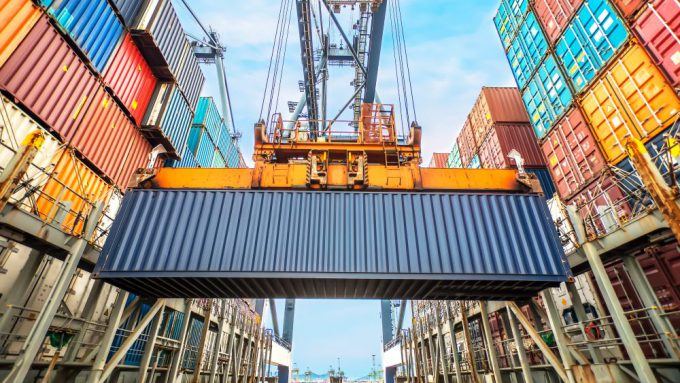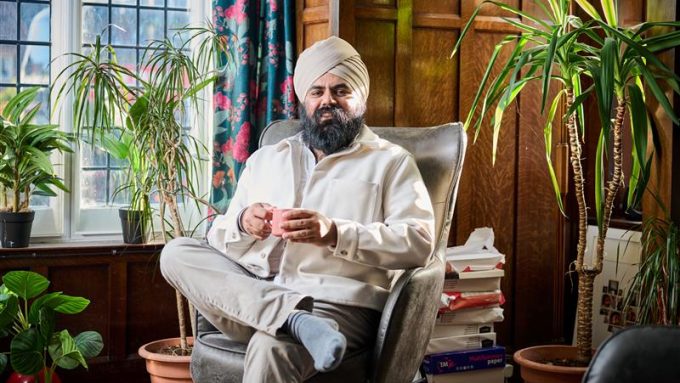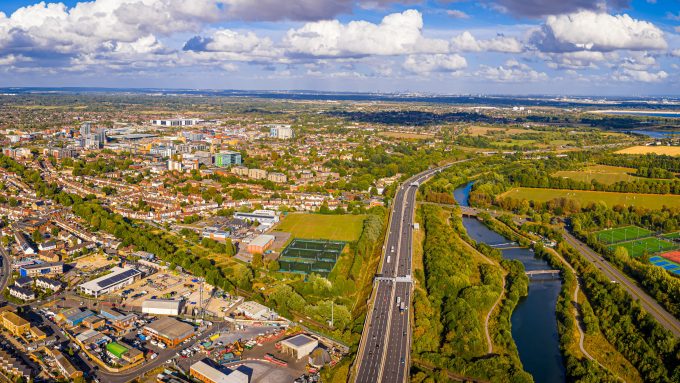
Meet the academic supporting sustainable transport start-ups

“We may be an island nation, but the UK has the potential to be a lighthouse in the world of decarbonised transport,” says manufacturing specialist and academic Marcos Kauffman.
“And it’s in the West Midlands with its automotive heritage where we can seize the opportunity,” the professor of technology and innovation management adds.
Marcos is Director for the Institute for Advanced Manufacturing and Engineering, and heads up Coventry University’s research centre for manufacturing materials – set up to help test and commercialise new ideas.
His aims include better understanding how companies develop and market new technologies; identifying what makes successful innovators profitable; and helping them create more economic and social impact.
“We are looking at digital transformation and digitalisation as ways to secure a competitive advantage in sustainable manufacturing and engineering,” he adds.
Over the last two years, Marcos has overseen the work of SMEs enrolled in the automotive half of the Clean Futures Accelerator, led by Connected Places Catapult in collaboration with Coventry University.
“It’s very exciting to help companies with whom we see potential, but very often don't see a way forward,” he says.
“Sometimes they have received funding or might have a proof of concept, but haven’t managed to do enough to convince a large company in the transport sector to buy their technology.
“It's a pleasure to put the university’s assets to good use to support SMEs on the programme through testing and development of clean transport technologies,” he adds.
“My personal goal is to work with companies that can take technology from the laboratory to market, make a difference by reducing transport carbon emissions, and contribute to the West Midlands Combined Authority’s goal of reaching net zero by 2041.”Professor Marcos Kauffman, Director for the Institute for Advanced Manufacturing and Engineering
He says Clean Futures has proved to be a great way of “mobilising resources to make things happen” and is proving to be of worth to SMEs and startups in order to help them to “market themselves, upscale and prepare for success”.
A hands-on approach on the farm
Marcos spent 12 years in industry before joining Coventry University in 2016, as an academic researcher, and remembers his roots fondly.
He was born in Brazil to German and Italian parents who managed a farm cultivating corn and coffee. As a teenager, Marcos bought equipment for running the farm, took a keen interest in fixing machinery, and learnt what it takes to run a business, how to manage costs and turn a profit.
“I learned from my father and grandad that it is better to build or fix something yourself, rather than go and ask other people; whether that was welding a piece of equipment that breaks, or building a barn.”

Marcos studied agricultural business at university and also developed an entrepreneurial sideline; opening up a gaming warehouse where young people paid to play computer games on over 80 machines connected to a network.
“Most teenagers didn’t have access to high-end computers due to the price, so the venture proved profitable,” he recalls. But by the time Marcos finished university, he had tired of the venture. “I love innovation, but if it gets to a steady state, I want to move on.”
Helping to streamline supply chains
Aged 21, Marcos relocated to Italy before moving to the UK. He enrolled on a law degree at the University of Buckingham, specialised in intellectual property and European law, and got a job with the Unipart Group to help establish a repair centre for an American technology company. Systems he developed screened products to identify defective components in need of repair.
“I was always interested in innovation and particularly on the fast-paced, high-tech side; and my aim with that company was to become leaner at manufacturing.”
He transferred to the automotive industry, spending seven years with BMW Mini in Oxford working to introduce digital and quality management systems to support the vehicle supply chain. “There was a lot of complexity with bespoke products that required just-in-time delivery, and sometimes just-in-sequence delivery,” he remembers.
“The idea of ‘Industry 4.0’ fascinated me,” he adds. “The third Industrial Revolution was around advances in computing to improve production processes. Whereas the fourth revolution is about distributing computing power through networks; better connecting production lines on the shop floor to chief executives on the top floor.”
Marcos went on to study a PhD at Coventry University in digital manufacturing and intellectual property strategies, and joined the University’s new Institute for Advanced Manufacturing and Engineering as Innovation and Digital Director.

Reducing the cost of battery production
Foremost in his current thinking is how to make electric vehicles more cost effective; to reduce the average cost of purchase from £35,000 to £20,000.
He explains around 40% of the cost of building an electric car involves the battery, so there is great advantage in developing technologies that cut the cost of manufacturing components.
In addition to his academic work at Coventry, Marcos is also a non-executive director of battery specialist Global Nano Network, whose co-founder Sindy Chaves was profiled in a recent Meet the Innovator feature.
Moving forward, Marcos would like to see the UK get better at commercialising innovations developed in this country, rather than seeing the best ideas being taken forward elsewhere.
He also urges the Government to invest in a centre of excellence for automotive decarbonisation in the West Midlands to build on the region’s vehicle heritage and help develop the next generation of cleaner transport.
“At the moment, we are not very organised in terms of pulling existing manufacturing resources and capabilities and directing them in a way that leads to a future competitive advantage for manufacturing,” he concludes. “This is a gap the UK needs to fill.”
Keep an eye on the Connected Places Catapult website for details about getting involved in year three of the programme.
Read about the work of Global Nano Network which participated in the Clean Futures programme.
Clean Futures is being led by Connected Places Catapult in collaboration with Coventry University. It is part of the wider West Midlands Innovation Accelerator, funded by UK Government and delivered by Innovate UK, which is designed to bolster the region’s innovation and R&D capability and spark commercial growth and investment.





